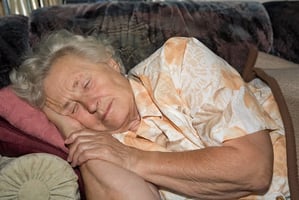Sleep Deprivation Can Heighten Anxiety
 |
Teens may be particularly susceptible to sleep deprivation. In another study of the issue, this one conducted by researchers at the Centers for Disease Control and Prevention, more than two-thirds of some 12,000 American teens were found to be getting too little sleep on a regular basis, and this lack of sleep was linked to several health-risk behaviors. More details about this study can be found in Psychiatric News.
To read much more about the consequences of sleep deprivation and the diagnosis and treatment of sleep problems, see American Psychiatric Publishing's Clinical Manual for Evaluation and Treatment of Sleep Disorders.
(Image: Lisa S./Shutterstock.com)




